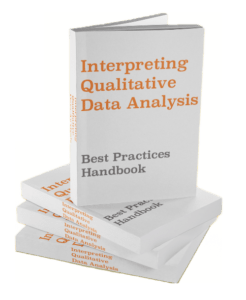Financial analysts are a necessity in almost every industry, but they have a unique set of responsibilities in healthcare. In an industry overwhelmed with a large aging population, a suddenly-larger number of people with insurance (including Medicare), and a shift from service-based care to value-based care, financial analysts are responsible for maintaining financial integrity and accuracy in a changing strategic and financial landscape.
Healthcare financial analysis is an exciting, fulfilling, and important job that pays well. It pushes financial analysts to be high-performing professionals that understand the ethical and profit concerns of the healthcare industry. To become one, most analysts need a deep understanding of the unique debt and insurance landscape in healthcare in addition to excellent accounting knowledge and financial modeling and analysis skills.
Healthcare Financial Analyst Salary
An important reason why healthcare financial analyst roles are sought after is the salary, which comes in at $68,656/year1. The average financial analyst, meanwhile, make a little less at $61,333/year2. That’s an average of a 12% higher salary.
What’s more, these are just entry-level salaries. Financial analysts that move up in the healthcare world see huge upside career potential, with salaries reaching the $100k – $150k area3. A close friend of mine was working in an investment bank (where salaries are notoriously 6 figures), but she was burnt out from the stressful, cut-throat environment and wanted to move into a corporate position. She made the move to a hospital and in 2 years was making the same banker salary.
Of course, salaries vary by region and company. States with huge hospital conglomerates and advanced healthcare systems, such as Florida, Tennessee, and Massachusetts, have a greater need for analysts. And they pay a salary premium for analysts with domain knowledge and experience.
Industry Dynamics: Growth & Change on the Horizon
The aging baby boomer population is expected to create huge demands in the healthcare industry, generating around 2.4 million new jobs, according to the U.S. Bureau of Labor Statistics4. The industry is looking up.
At the same time, the healthcare business model is changing, especially in the United States. Today, healthcare is a service-based model. This means you pay for what you get — from the doctor’s time to the bed you sit in to the water cup you use during treatment. With a service-based system, hospitals and clinics are incentivized to keep you as long as possible, and have you consume as much as possible — the longer you stay, the more revenue they make.
However, healthcare disrupters insist on a model that pushes hospitals to engage in serious cost-savings. It’s a system that would reward institutions for the quality of the care they provide, not the absolute consumption of care.
Though this new system could take many shapes, it goes by the term value-based, since revenues would be dependent on value delivered to customers — not absolute consumption. Value-based systems are getting attention in politics as well, since the amount of medical debt in the United States is becoming more and more dangerous with time and medical care consumers (i.e almost everyone) have no control over the industry.
Growth and change isn’t only relevant to healthcare professionals. Behind every nurse and doctor, there is a whole team of salespeople, receptionists, and of course, financial professionals. As the industry grows and takes new shape, financial analysts gifted in modeling abstract, unconventional financial setups will be tantamount to success.
How to Become a Healthcare Financial Analyst
The best way to become a healthcare financial analyst is to get strong financial analysis skills and accounting knowledge. I spent several years trying to learn this from textbooks, but at the end of the day, nothing can substitute practice. That’s why I’ve designed courses and free content for financial analysts to help you learn and practice at the same time. With this knowledge I became a financial analysts without even getting a degree.
That said, a traditional route that takes a few years and consists of the following steps:
- Get a bachelor’s degree in business, science, technology, engineering, or math. While you don’t need an analytical degree to move into finance, it can give you a head start. Employers, like many people, tend to assume that degrees in analytic careers have a higher chance of success.
- Consider getting an MBA. MBAs are a go-to degree around the world today. They are one of the few internationally-recognized degrees.
- Consider getting a masters degree in a managerial field, such as a Masters of Public Administration. While not as common as the MBA, MPAs allow you to see business through the lens of its relationship to the public sector.
- A Masters degree in healthcare, such as a Masters of Health Administration, would be a huge plus. The Masters of Health Administration (MHA) is arguably the BEST degree for moving into administrative healthcare roles. However, it is not a finance education. This means you would either need to combine it with an undergraduate degree in analytics or get several years of real-world finance experience to supplement.
- Gain experience in a hospital, even if it’s volunteering, to get the job. Healthcare is complex, and industry knowledge is a must-have. If you’re an experienced financial analyst but you don’t have any experience in healthcare, you could even loose out to a junior analyst with years of exposure to healthcare. The reason is that the healthcare industry is quite complex — understanding how insurance and consumer debt impact a hospital is not for the faint-of-heart.
Many a financial analyst have tried and become overwhelmed by healthcare balance sheet complexity. And hospitals know it. However, if you have worked with hospitals (in any administrative level) for a long time, you understand the basics. And this goes a long way.
Moreover, it is impossible to measure the ethical responsibility of finance in healthcare. Hospitals wrestle with the need for profit and the ethical responsibility to deliver quality care. The average financial analyst may lack experience with ethical and empathetic thinking, so hospitals may favor those with hands-on experience.
Industry Experience and Financial Experience? Hired on the spot!
The core message is this: if you want to become a successful healthcare financial analyst, you need domain knowledge, industry experience, and financial analytical ability. The good news is that once you have these traits, you can almost always get hired. Few analysts have this profile, and demand is so high, that moving up is a matter of filing out the application.
Healthcare Financial Analyst Tasks: What do they do exactly?
A healthcare financial analyst daily tasks consist primarily of financial modeling, operational monitoring, budget development and analysis, financial statement analysis, and cost analysis. Like normal financial analysts, healthcare analysts need to be well-versed in financial relationships, financial terminology, and financial statements. But what makes them different?
Unlike almost any other industry, however, healthcare financial analysts have to be good at managing insurance claims and debt payments from customers. In most industries, customers buy a product or service and pay either on the spot or within a set period of time. However, healthcare is another story.
Customers with insurance often go through dispute where they wrestle to find out who will pay for a service — insurance or customer. And in a changing world of emergency clinics, in-and-out hospital wings, and special treatment centers, these disputes require more and more attention.
Normally, the customer is obliged to settle the amount by a certain date regardless of insurance participation, but they often do not have the cash on hand — that’s why they buy insurance. When customers can’t pay while they dispute with insurance, hospitals bear the debt. So, the hospital either sells the debt to a collections agency, or the hospital works out a payment plan based on interest with the customer.
What does this mean for financial analysts? It means they need to be good at managing a complex accounts receivable structure, where accounts receivable days may vary month-over-month by a huge amount. They need to have excellent modeling skills to plan out the company cash flow from operations, and work closely with the treasury team to ensure liquidity and profit optimization.
Financial analysts who are familiar with the complexity of these insurance and debt structures are able to help hospitals and other health institutions plan their business in the best way possible.
Skills for Success as a Healthcare Financial Analysts
Healthcare financial analyst skills include modeling, accounting knowledge, interpersonal skills, reporting, and critical thinking, but arguably the most important is non-cash working capital analysis. The reason working capital is so important for healthcare analysts has to do with the complexity of customer payments, or accounts receivable, due to the evolving dispute landscape between customers and insurance companies, and the high costs of healthcare.
As a list, the top skills of a successful healthcare financial analyst include:
- Financial modeling
- Critical understanding of the P&L, Balance Sheet, and their impact on cash
- Cash flow forecasting with complex working capital
- Verbal and written communication skills to “translate” financial results to non-finance healthcare professionals
- Thorough understanding of the ethical and financial obligations of a hospital


